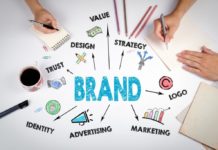This is a book excerpt from “For Immediate Release: Shape Minds, Build Brands and Deliver Results with Game-Changing Public Relations” by Ronn Torossian of 5WPR.
Part 1 of 2:
We launched a PR campaign for baby products company Born- Free to educate consumers, with the help of medical experts, about the potential harm to babies from a chemical called bisphenol A (BPA).
BPA is in polycarbonate plastic, commonly used to make all sorts of plastic bottles, including those for babies. The chemical could be dangerous if it leaked into milk or other liquid. In fact, BornFree was founded on the principle of eliminating BPA from baby bottles.
In 2006 Gil Lemel, the president of Kyozou.com, a company that helps small businesses build e-commerce websites, had a friend come to him with the idea of starting a Web-based BPA-free baby bottle business. Lemel had just days before noticed his wife tossing out all the plastic containers in their house after seeing a news report about the dangers of BPA. It was one of those “convergence” moments when the same idea starts popping up in unusual places, but at around the same time (FYI, it pays to notice when this happens).
Seeing his wife clearing out the cabinets of plastic containers struck a chord with Lemel. He ended up buying the rights to manufacture and sell his friend’s BPA-free bottles in the United States and Canada. He figured it was just a matter of time before the news reports about the dangers of BPA “got legs” and started spreading around North America, especially since there is a great deal of interest among the press about green issues and health dangers. This fit right in; the more people knew about it, the more they would be eager to buy bottles that were safe—who’s going to take a chance with a baby?
Along with two business partners, Lemel invested in BornFree Holdings and started manufacturing bottles made of BPA-free polyethersulfone. The nine-ounce bottles featuring a cap with a slotted air vent, to help reduce colic and gas, cost the trio about
$5 each to make. Lemel created a two-pack of BornFree bottles to market online and priced at $20.
Interest was slow at first—few American moms and dads were concerned about BPA when Lemel and his partners first launched BornFree. Plus, the bottles were pricey. Despite the fact that there isn’t as much price resistance when it comes to baby products as there is to other products in the marketplace, $10 a bottle seemed excessive when regular baby bottles could be had for just a few dollars each.
So the company capitalized on the very notion that formed the basis of the idea—information about the health of baby bottles. The company “expertized” itself. One of the partners, Ron Vigdor, took on the role of BPA educator-in-chief. He started writing and speaking to interested groups, including the People for Children’s Health & Environmental Justice, to promote concerns about BPA. Simply by getting out there with information to targeted groups, Vigdor attracted interest from Whole Foods, which had already removed baby bottles and sippy cups containing BPA from its shelves in early 2006.
Whole Foods customers were perfect for BornFree because they are what is known as “early adopters”—people who participate right on the cusp of movements. Babies“R”Us climbed on board shortly after.
In March 2007, the American Chemistry Council (ACC) complained to the national advertising division of the Council of Better Business Bureaus about BornFree’s claim that its bottles were a “safer alternative.”
(Part 2 will run tomorrow on my blog.). If you don’t have the book, get it at your local bookstore, or Amazon or BN.com
Read more from Ronn Torossian:
Ronn Torossian on Facebook
Ronn Torossian on Medium
Ronn Torossian on LinkedIn
5WPR, Public Relations Insights & PR Firm
Ronn Torossian on Business Insider




